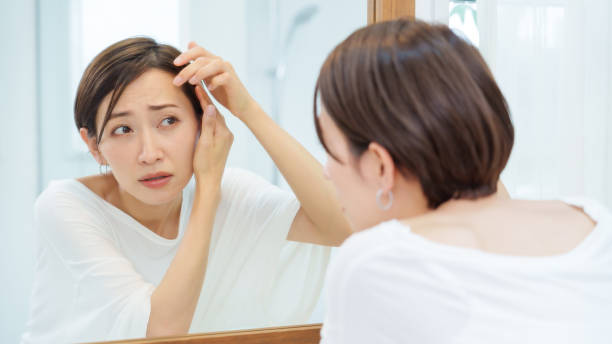Introduction:
In the grand tapestry of personal appearance, few things carry as much weight as a full head of hair. Yet, for many, the journey through life includes a chapter on hair loss. In this blog, we’ll embark on a journey to demystify the phenomenon of hair loss, exploring its causes, dispelling myths, and offering insights on coping strategies.
The Basics of Hair Loss:
Hair loss, or alopecia, is a common condition that can affect individuals of all ages and genders. It manifests in various forms, from gradual thinning to sudden, noticeable shedding. Understanding the basics of the hair growth cycle and the factors influencing it is crucial in comprehending the complexities of hair loss.
Common Causes of Hair Loss:
Hair loss can stem from a myriad of factors, ranging from genetics and hormonal changes to medical conditions and lifestyle choices. Androgenetic alopecia, commonly known as male-pattern baldness or female-pattern baldness, is a hereditary condition that often contributes to hair loss. Other causes include hormonal imbalances, certain medications, and chronic illnesses.
Dispelling Myths:
Hair loss is often accompanied by a plethora of myths and misconceptions. Debunking these fallacies is essential in fostering a realistic understanding of the condition. Contrary to popular belief, wearing hats, frequent shampooing, or standing on your head won’t significantly impact hair loss. Separating fact from fiction is crucial for informed decision-making.
Seeking Professional Advice:
If you’re experiencing noticeable hair loss, consulting with a healthcare professional or a dermatologist specializing in hair disorders is a proactive step. Diagnostic tests, medical history evaluations, and a thorough examination can help identify the root cause of hair loss, guiding the development of an effective treatment plan.
Treatment Options:
Various treatment options exist for managing hair loss, depending on the underlying cause. Topical medications, oral prescriptions, and surgical interventions such as hair transplantation are among the options available. Understanding the benefits and limitations of each approach is essential for making informed choices.
Lifestyle Factors:
Beyond medical interventions, lifestyle plays a significant role in maintaining healthy hair. Nutrient-rich diets, regular exercise, and stress management contribute to overall well-being, positively impacting hair health. Adopting a holistic approach that addresses both physical and mental health is key.
Coping Strategies and Self-Acceptance:
Coping with hair loss is a personal journey that involves emotional and psychological well-being. Embracing one’s changing appearance, exploring different hairstyles, and seeking support from friends, family, or support groups can foster self-acceptance. Remember, beauty extends beyond physical appearance, and true confidence radiates from within.
Conclusion:
Hair loss is a natural part of life for many individuals, and understanding its intricacies can empower informed decision-making. By seeking professional guidance, exploring treatment options, and embracing self-acceptance, individuals can navigate the journey of hair loss with resilience and grace. Remember, you are more than your hair, and your unique beauty shines through regardless of the follicles on your scalp.


